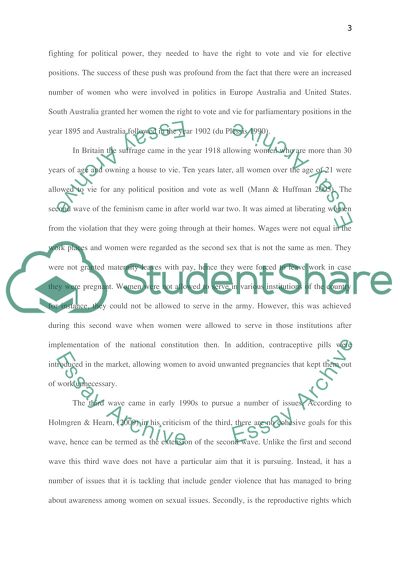Cite this document
(The Relevance of Feminist Issues in International Relations Coursework Example | Topics and Well Written Essays - 2500 words, n.d.)
The Relevance of Feminist Issues in International Relations Coursework Example | Topics and Well Written Essays - 2500 words. https://studentshare.org/social-science/1856619-3-it-is-as-if-the-issues-raised-by-feminism-are-not-relevant-to-the-international-sphere-and-need-not-form-part-of-the-academic-agenda-for-the-study-of-international-relations-halliday-1988-419-what-are-those-issues-and-what-is-their-relevance
The Relevance of Feminist Issues in International Relations Coursework Example | Topics and Well Written Essays - 2500 words. https://studentshare.org/social-science/1856619-3-it-is-as-if-the-issues-raised-by-feminism-are-not-relevant-to-the-international-sphere-and-need-not-form-part-of-the-academic-agenda-for-the-study-of-international-relations-halliday-1988-419-what-are-those-issues-and-what-is-their-relevance
(The Relevance of Feminist Issues in International Relations Coursework Example | Topics and Well Written Essays - 2500 Words)
The Relevance of Feminist Issues in International Relations Coursework Example | Topics and Well Written Essays - 2500 Words. https://studentshare.org/social-science/1856619-3-it-is-as-if-the-issues-raised-by-feminism-are-not-relevant-to-the-international-sphere-and-need-not-form-part-of-the-academic-agenda-for-the-study-of-international-relations-halliday-1988-419-what-are-those-issues-and-what-is-their-relevance.
The Relevance of Feminist Issues in International Relations Coursework Example | Topics and Well Written Essays - 2500 Words. https://studentshare.org/social-science/1856619-3-it-is-as-if-the-issues-raised-by-feminism-are-not-relevant-to-the-international-sphere-and-need-not-form-part-of-the-academic-agenda-for-the-study-of-international-relations-halliday-1988-419-what-are-those-issues-and-what-is-their-relevance.
“The Relevance of Feminist Issues in International Relations Coursework Example | Topics and Well Written Essays - 2500 Words”. https://studentshare.org/social-science/1856619-3-it-is-as-if-the-issues-raised-by-feminism-are-not-relevant-to-the-international-sphere-and-need-not-form-part-of-the-academic-agenda-for-the-study-of-international-relations-halliday-1988-419-what-are-those-issues-and-what-is-their-relevance.


